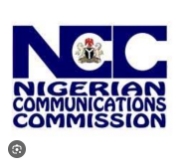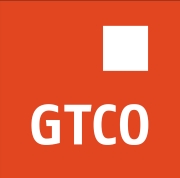
NCC presents draft General Authorisation Framework to external telecom stakeholders
By Bose Adelaja
CITIZENS COMPASS—The Nigerian Communications Commission (NCC) on Thursday, presented the draft General Authorisation Framework to external telecom stakeholders to achieve a united vision for a digitally inclusive Nigeria.
The event was held in the Federal Capital Territory (FCT), Abuja with many stakeholders in attendance.
The project was necessitated by evolving user needs.
Speaking at the event, Dr. Aminu Maida, NCC Executive Vice Chairman, said in the last 24 years, following the liberalization of the sector, Nigeria has witnessed tremendous transformation leading to the achievement of over 79.65% tele-density and a Broadband Penetration of 48.81 as at May 2025.
He said this progress has been driven by the rapid uptake of mobile technologies, surging data consumption, and an increasing appetite for digital services. But we are now at a turning point, where the nature of innovation demands a regulatory paradigm that is not only responsive but enabling.
According to him, “As a catalyst for national development, Nigeria’s telecommunications industry has become a symbol of innovation and progress. It has revolutionized communication, improved access to information, and reshaped business operations.
“Today, we are at a significant juncture, where disruptive innovations are accelerating the evolution of the communications ecosystem. Broadband Penetration continues to grow, while digital literacy is on the rise. These are creating a solid foundation for a vibrant digital economy driven by accessibility, innovation, and inclusivity.
“Technological innovation is accelerating across the world and nation, particularly within the telecommunications sector. Every day, we learn of how innovators are pushing boundaries with daring ideas, venturing into new frontiers of innovation, and expanding the possibilities of our sector. “From 5G deployment and AI-driven smart networks, to blockchain applications and fintech advancements, these developments are driving profound change in the telecommunications ecosystem. They are reshaping critical sectors including communications, finance, education, and governance and unlocking vast potential for inclusive growth, enhanced service delivery, and sustainable national transformation. But we are now at a turning point, where the nature of innovation demands a regulatory paradigm that is not only responsive but enabling.
“Modern regulation must be designed to enable innovation rather than hinder it. This is an objective that lies at the core of the Nigerian Communications Commission’s (NCC) latest initiative: the General Authorisation Framework. “This reform introduces a flexible and responsive regulatory licensing approach that is structured to embrace new and emerging services that fall outside the existing License Structure.
The framework introduces three key instruments: Proof-of-Concept pilots to validate novel ideas in real-world environments. A Regulatory Sandbox, which allows innovators to test solutions—such as Open RAN trials, or dynamic spectrum sharing—under controlled and risk-managed
conditions. An Interim Service Authorisation for services that do not yet fit within existing license categories.
“By adopting this approach, we are providing a platform for innovators of various sizes—whether they are startups or established companies—to demonstrate feasibility, assess risk, and measure outcomes before deployment. This model encourages experimentation and responsible innovation while safeguarding consumer rights and public interest.
“However, regulation alone is not enough. You—our stakeholders—are central to the success of this framework. Mobile Network Operators, Service Providers, Infrastructure Companies, OEMs, startups, civil society, and academia all have a role to play. Your insights, your ideas, and your partnership are critical in refining this approach and making sure that it works for Nigeria.
“As we look to the future, we must ensure that no one is left behind. That means expanding access, closing connectivity gaps, and empowering our youth, women, and underserved communities hrough inclusive innovation.”






